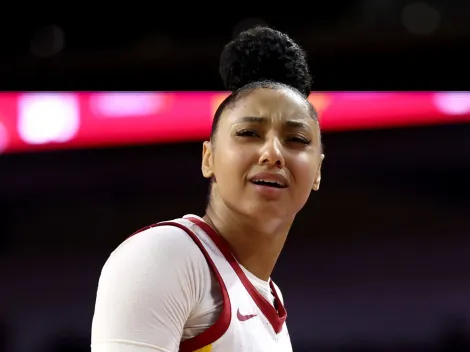The Minnesota Lynx and the New York Liberty are set to clash in the 2024 WNBA Finals, where one team will emerge as the champion. While much of the season’s buzz revolved around Indiana Fever’s rookie Caitlin Clark, her early exit from the playoffs didn’t diminish interest in the remaining games.
Despite the Fever’s elimination, the league continued to see strong viewership numbers during the semifinals. Reports indicate that Game 1 of the series between the Liberty and the Las Vegas Aces was the most-watched WNBA semifinal game in 22 years, drawing an audience of 994,000 viewers.
For context, last year’s WNBA semifinals averaged just 427,000 viewers, as reported by Sports Media Watch. While these numbers don’t match the staggering 2.5 million viewers who tuned in for Caitlin Clark’s Game 2 showdown against the Connecticut Sun earlier in the playoffs, it is still a considerable improvement over previous seasons.
For example, The Liberty-Aces series consistently maintained strong ratings, with each game averaging over 900,000 viewers. The numbers aren’t too far from the million-viewer mark that Caitlin Clark’s games regularly achieved throughout the season.
All four games of the Liberty-Aces semifinals drew larger audiences than last year’s most-watched WNBA Finals game, which averaged 889,000 viewers. As the Lynx and Liberty prepare for their final showdown, the league is poised to conclude the season on a high note.
Sue Bird weighs in the Caitlin Clark’s effect
In a recent podcast episode of A Touch More with Sue Bird & Megan Rapinoe, Bird said that while Clark “is a big draw,” there’s no need to be pessimistic about the league’s growth. “Yes, the games where she’s not playing have lower viewership. But in the WNBA playoffs-let’s use the semifinals as an example-the games where Caitlin obviously is not in it because her team lost are still breaking records from previous WNBA years, still cracking a million viewers,” she said.
Bird’s remarks were aimed at media figures like Stephen A. Smith and Shannon Sharpe, who had raised doubts about the league’s ability to maintain strong viewership without Clark in the postseason. However, the recent numbers suggest that the teams are capable of drawing in audiences.





